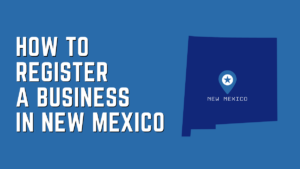Starting a business in South Carolina can feel overwhelming, especially if you’re new to entrepreneurship. However, with the right guidance and resources, you can simplify the process. Our blog post offers a step-by-step guide to registering your business in South Carolina, providing valuable tips and resources to streamline the process.
Whether you’re starting a new venture or formalizing an existing one, our guide outlines the registration process in seven clear steps. We’ve also compiled a list of exceptional business registration services, like Northwest Registered Agent, which is known for its expertise in simplifying this process. Let’s dive into the details and expedite your business registration journey in South Carolina!
>> South Carolina Business Registration – Northwest Registered Agent >>
Featured Partner
Northwest Registered Agent
Start with an LLC
for $39 + state fee
Priority Support Team
24/7
Form an LLC online
Fast And Easy
How to Register Your Business in South Carolina in 7 Simple Steps
To launch a business in South Carolina, it’s essential to comprehend the 7 steps outlined below thoroughly. By diligently adhering to these guidelines, you can accelerate the business registration in the South Carolina procedure and promptly register your business in South Carolina.
Step 1: Choose Your Business Structure
The selection of a suitable business structure in South Carolina relies on both the nature of your business and your objectives for expansion.
We have previously summarized the different options available in South Carolina, including incorporated and unincorporated businesses. Now, let’s explore these choices and their operational characteristics.
It’s important to note that if you decide on a structure that causes incorporation, it will be necessary to register your business with the South Carolina Secretary of State.
Sole Proprietorship
In South Carolina, a Sole Proprietorship is the most basic form of business structure. It combines the owner and the business into one legal entity, making the owner personally liable for the business’s debts and obligations.
Setting up a Sole Proprietorship in South Carolina is a simple process that involves minimal legal and administrative requirements. While there’s no obligation to register your Sole Proprietorship in South Carolina, you may still need to obtain permits or licenses at the local level.
General Partnership
A General Partnership refers to a business that’s jointly owned by multiple individuals who both share the financial gains and losses. Each partner assumes personal responsibility for any debts or legal obligations incurred by the business.
In South Carolina, there’s no requirement to register a General Partnership with the state officially. However, it may be necessary to file a “South Carolina Assumed Business Name Certificate” (DBA) in the county where your business operates.
Limited Partnership (LP)
How to register a business in South Carolina as an LP. A Limited Partnership in South Carolina comprises general partners who handle the business and take on unrestricted personal responsibility and limited partners who provide capital but have restricted liability. To establish an LP in South Carolina, you’re required to submit a “Certificate of Limited Partnership” to the South Carolina Secretary of State.
Limited Liability Company (LLC)
A Limited Liability Company (LLC) is a versatile business entity that blends the liability safeguard of a corporation with the tax advantages and ease of a partnership. To establish an LLC in South Carolina, you must submit “Articles of Organization Limited Liability Company” to the South Carolina Secretary of State and craft an Operating Agreement that delineates the company’s management and ownership framework.
Corporation
In South Carolina, there are two categories of Corporations: those that offer limited liability protection and are considered separate legal entities from their shareholders.
- C-Corporations
- S-Corporations
To form a company in South Carolina, you’ll need to submit either the “Articles of Incorporation For-Profit Corporation” or the “Articles of Incorporation Nonprofit Corporation” to the South Carolina Secretary of State, depending on your business type.
Additional requirements for corporations include creating bylaws, issuing stock, and holding regular board and shareholder meetings.
Choosing a business structure that provides adequate liability protection, meets your taxation needs, and fulfills your management requirements is important. If you need guidance in making this decision, it’s advisable to seek assistance from a legal or business expert.
>> Check Out Northwest Registered Agent >>
Step 2: Select a Unique Business Name
In the state of South Carolina, there are various ways to name your business. You can register a legal entity name, obtain a trademark, or register one legal name and operate under a different one.
The rules and regulations regarding business naming differ from state to state, so it’s crucial to familiarize yourself with the specific requirements in South Carolina.
Similar to incorporating your business, the choice of naming route in South Carolina will depend on your entity’s unique circumstances and needs.
While pursuing all three options to secure exclusivity for your chosen name may be advisable, you can also choose just one method. Although not mandatory, using the same name is a wise decision to maintain consistency across all registration methods.
Now let’s delve into each of these naming options that are available in more detail, specifically for South Carolina.
Legal Entity Name
Businesses in South Carolina must register a legal entity name, which acts as the company’s official identification, according to state regulations. Choose a unique name that doesn’t conflict with other businesses.
The naming laws in South Carolina also specify the use of company suffixes such as LLC, LP, or Corp and require that the name accurately represents the nature of the business being registered. To check if a name is available, you can use the database provided by the South Carolina Secretary of State.
Trademark
In South Carolina, a trademark safeguards Intellectual Property for a business’s name or logo nationwide. Examining the USPTO database to confirm that the intended name or logo hasn’t already been registered is imperative.
Once successfully registered, a trademark provides exclusive rights over the name or logo, preventing others from using similar ones for comparable goods or services across the country. However, it should be noted that obtaining a trademark doesn’t automatically grant complete unrestricted usage rights for said name or logo under all circumstances.
Operating Under a Different Name (DBA)
In South Carolina, you can legally register your business under one name while operating it under a different name, commonly known as a Doing Business As (DBA) name.
To establish a DBA, you must file an Assumed Name Certificate with the county clerk’s office in the specific county where your business operates. Although DBAs are subject to federal trademark laws, there’s no requirement for uniqueness at the state level.
By comprehending and thoughtfully considering these naming alternatives, you can effectively register your business in South Carolina without compromising your brand identity.
>> South Carolina Business Registration – Northwest Registered Agent >>
Step 3: Consider Taxes and Other Costs in South Carolina
South Carolina Limited Liability Companies (LLCs) are required to pay various taxes, which encompass a range of obligations.
- Franchise Tax: The franchise tax in South Carolina is a fixed fee of $150, which the LLC must pay on or before its anniversary date of formation. This tax is essential for funding various state initiatives such as education, transportation, and public safety.
- Sales Tax: The state of South Carolina levies a 6% sales tax on purchasing physical goods and taxable services. Sellers collect this tax from customers and submit it to the government. Various exemptions exist for certain transactions, such as those involving sales to the federal government, nonprofit organizations, and specific food items.
- Income Tax: LLCs in South Carolina are exempt from state-level income tax, although members of an LLC may still be liable for income tax on their portion of the LLC’s earnings. The progressive income tax rates in South Carolina vary between 3% and 7%.
Besides the aforementioned taxes, South Carolina LLCs may also face local taxes, such as property taxes and business license fees. If you’re thinking about setting up a South Carolina LLC, it’s advisable to seek guidance from a tax advisor to determine which specific taxes will apply to your business.
Entrepreneurs in South Carolina have the option of utilizing online solutions like Northwest Registered Agent to streamline the business registration process.
Northwest Registered Agent offers comprehensive services tailored to assist entrepreneurs in registering their businesses in South Carolina. These services include filing with the Secretary of State, obtaining an Employer Identification Number (EIN), and creating an operating agreement.
Additionally, Northwest Registered Agent provides ongoing compliance support to help businesses maintain a favorable standing within the state.
>> Register Your Business With Northwest Registered Agent >>
Step 4: Register and Acquire Licenses and Permits in South Carolina
To guarantee adherence and credibility, requesting the appropriate licenses and permits for your business activities is vital. In South Carolina, specific registrations and permits are mandatory to operate legally.
Tax Registration: To participate in retail sales in South Carolina, you must acquire a retail license from the South Carolina Department of Revenue (DOR). If you intend to employ individuals within the state, you must register for employer withholding tax.
Employer Identification Number (EIN): If your company employs individuals or has its own tax identification, it’s essential to acquire a federal EIN from the IRS. Even if it’s not legally required, there are often pragmatic reasons for obtaining an EIN.
Financial institutions typically mandate an EIN to establish a business account, and other organizations you partner with may also demand an EIN for payment. The process of applying for an EIN can be conveniently done online incurring no filing fees.
Regulatory Licenses and Permits: These cover different fields like healthcare and security, adherence to environmental regulations, architecture, and development, as well as particular sectors or offerings.
You can find detailed details about the licenses you may need and the corresponding authorities in the Licenses, Permits, and Registration section on the official state website. For licenses and permits at a local level, it’s recommended to refer to the websites of cities or counties where your business will be active.
Professional and Occupational Licenses: To work in certain industries, it’s essential to possess the appropriate licenses.
The Division of Professional and Occupational Licensing (POL), which operates under the South Carolina Department of Labor, Licensing, and Regulation (LLR), oversees professional licensing. If your profession falls under the scope of professional and occupational licenses, it’s important that you obtain the necessary licensure from POL.
By following the prescribed procedures for obtaining these licenses and permits, you show your dedication to adhering to regulatory requirements and upholding professional standards within South Carolina.
>> Register Your Business With Northwest Registered Agent >>
Step 5: Open a Bank Account for Your Business in South Carolina
After obtaining your EIN, it’s essential to establish a business bank account in South Carolina. The rules and regulations governing LLPs, LLCs, and corporations in the state require the necessity of having a business bank account.
However, if you’re a sole proprietor or part of an unincorporated partnership, there’s no legal obligation to maintain separate personal and business accounts.
To open an account, visit a local bank in South Carolina and complete the necessary paperwork. Before deciding which bank to choose, it’s advisable to compare rates and benefits offered by different banks. This will ensure that you make the most helpful choice for your business.
Even if you currently operate as a sole proprietor or unincorporated partnership, it’s wise to have a designated business bank account in South Carolina.
This helps maintain financial segregation between personal and business finances. Taking this proactive step will prevent potential complications if you decide to incorporate your business in the future.
>> Consider Northwest Registered Agent >>
Step 6: Protect Your Intellectual Property in South Carolina
When registering a business in South Carolina, it’s crucial to consider the protection of your valuable Intellectual Property (IP), depending on your company.
For example, most businesses strive to prevent other entities from unlawfully copying and using their name and logo. Depending on whether your business involves selling goods or providing services, you may also want to safeguard the design of your products or the creative works you produce, such as writings, designs, or music.
South Carolina offers various methods to achieve this objective, and starting the applications promptly is helpful for safeguarding your IP against unauthorized use.
Trademark
In South Carolina, a trademark is defined as a recognizable symbol, phrase, word, or design that sets apart a product or service from others in the market.
To obtain legal protection, trademarks must be officially registered with the United States Patent and Trademark Office (USPTO). The business registration in South Carolina takes between four to six months. Once successfully registered, the trademark is protected nationwide and enables legal action against any unauthorized use.
Businesses located in South Carolina can safeguard their trademarks by registering them with the USPTO. This ensures protection for their brand and reputation and grants them legal recourse against any unauthorized usage.
Copyright
In South Carolina, copyright law safeguards original works of authorship, including literary, dramatic, musical, artistic, and certain other intellectual creations. This encompasses a wide range of content, such as written material, software programs, website content, films, sound recordings, images, and creative expression.
Whenever you create a new work in South Carolina as its creator or owner of exclusive rights to distribute and control its utilization, including reproduction and creation of derivative works for sale or otherwise. You automatically receive copyright protection.
However, register your copyright with the U.S Copyright Office in South Carolina to obtain additional legal protection. Registering your copyright is proof of ownership and helps safeguard your work against infringement.
If an infringement occurs, registration provides you with an avenue for enforcement through the judicial system.
Patent
In South Carolina, securing a patent is vital if you have created a new product or machinery. A patent provides exclusive rights to the holder, preventing others from manufacturing, selling, or importing the patented item for a specific period.
Applying for a patent is complex and can take up to five years to complete. Therefore, starting the process early is advisable if you have an innovative invention that requires protection. Patent applications are submitted to the United States Patent and Trademark Office (USPTO).
You can protect your brand, products, and creations by safeguarding your Intellectual Property in South Carolina. This ensures that your business maintains its competitive advantage and thrives in the market.
>> Visit Northwest Registered Agent >>
Step 7: Set Up Your Payment Infrastructure in South Carolina
To ensure that your business in South Carolina is fully prepared to serve customers promptly after registration, it’s crucial to establish a seamless and convenient system for accepting payments.
Various payment processing services offer user-friendly interfaces that can be easily integrated with your website or point-of-sale (POS) system. Popular choices like Square, Stripe, and PayPal provide flexible and customizable systems according to your business’s objectives.
These payment processors allow you to accept a wide array of payment methods, including credit and debit cards, ACH transfers, and digital wallets such as Apple Pay and Google Pay.
By selecting a dependable service for processing payments, you can offer your customers the flexibility to pay using their preferred methods through a secure platform. This ensures a smooth transaction experience for both your business and clients.
When selecting a payment processor, ensure that your business in South Carolina complies with sales tax regulations. This entails obtaining a South Carolina Retail License from the Department of Revenue, which allows you to collect sales tax on taxable products and services.
Once your payment system is set up, your South Carolina-based business will be ready to efficiently and securely serve customers while generating revenue.
By following these guidelines, you will be well on your way to establishing a legally compliant enterprise in South Carolina.
>> Register Your Business With Northwest Registered Agent >>
Top 6 Business Registration Services for South Carolina Entrepreneurs
Entrepreneurs and small business owners in South Carolina have access to varies business registration services. These services provide solutions to help businesses establish themselves and meet state and federal regulations.
Here are some of the top business registration services available for entrepreneurs in South Carolina:

Northwest Registered Agent
Related Post Link
Northwest Registered Agent is an online service that assists businesses with business registration, compliance management, and document filing. It is well-known for its excellent customer service and commitment to providing high-quality assistance.
Their personalized support helps South Carolina businesses ensure they meet both state and federal regulations. Northwest Registered Agent offers a range of services for forming LLCs, corporations, and nonprofits.
>> South Carolina Business Registration – Northwest Registered Agent >>

Tailor Brands
Related Post Link
Tailor Brands is an online service that assists businesses in creating a cohesive and polished brand image. Their services encompass logo design, business card design, and social media branding.
Through their comprehensive suite of design tools and resources, Tailor Brands allows businesses to personalize their branded assets.
While not functioning as a conventional business registration service, Tailor Brands aids entrepreneurs in South Carolina by establishing an appealing brand identity that attracts customers.
>> Register Your Business in South Carolina With Tailor Brands >>

BusinessRocket
Related Post Link
BusinessRocket stands as an innovative digital platform committed to providing vital services for business registration in South Carolina.
With its intuitive interface and expert guidance, BusinessRocket streamlines every phase of the process, starting from choosing the suitable business structure to managing all essential paperwork and acquiring necessary licenses.
By customizing solutions to meet the specific needs of each client, this platform guarantees efficiency, affordability, and unwavering adherence to state regulations.
By harnessing intuitive tools and abundant resources, BusinessRocket empowers entrepreneurs to initiate their ventures, entrusting administrative duties to experienced industry professionals.
>> Check Out BusinessRocket Today >>

ZenBusiness
Related Post Link
ZenBusiness is a digital platform that assists entrepreneurs with business registration, registered agent services, annual report filing, and other related tasks. Their services are reasonably priced and come with comprehensive packages.
They offer personalized assistance and access to resources that aid in maintaining compliance and promoting business expansion.
ZenBusiness takes pride in its user-friendly website and the efficient process it has developed for South Carolina entrepreneurs to simplify the business registration process.
>> Register Your Business in South Carolina With ZenBusiness >>

Swyft Filings
Related Post Link
Swyft Filings has gained popularity as a business registration service. It is recognized for its efficient and convenient services for forming businesses, such as LLC services, incorporation, and compliance.
Their commitment to providing personalized support and resources assists South Carolina businesses in navigating the registration process while complying with state and federal regulations.
Swyft Filings’ website is user-friendly, making business registration accessible and hassle-free without breaking the bank.
>> Register Your Business in South Carolina With Swyft Filings >>

Bizee
Related Post Link
Bizee is a digital service that specializes in providing quick and cost-effective solutions for business formation. Their offerings encompass registered agent services, management of compliance requirements, and assistance with document filing.
By utilizing a user-friendly and efficient platform, Bizee guarantees a seamless and trouble-free process for entrepreneurs in South Carolina who are looking to register their businesses in South Carolina.
Besides this, they offer ongoing support and valuable resources designed to aid businesses in achieving compliance and fostering growth.
Entrepreneurs in South Carolina have a variety of business registration services available to them. Each service has its own distinct advantages and benefits that can help streamline the registration process.
By carefully researching and comparing these services, entrepreneurs can find the one that best fits their individual needs. This will ensure a seamless and efficient registration experience for their businesses.
>> Register Your Business in South Carolina With Bizee >>
Business Registration Laws in South Carolina
Registering a business in South Carolina entails various steps and legal obligations. Let’s explore the essential elements of the business registration regulations in this state:
- Business Structure: Choose the appropriate legal framework for your business, such as Sole Proprietorship, Partnership, Corporation, or Limited Liability Company (LLC). Each structure comes with its own specific prerequisites and legal consequences.
- Naming Your Business: Select an original and easily recognizable title for your company. Verify that the chosen name adheres to the naming criteria established by South Carolina and isn’t currently being used by any other registered organization.
You can consult the South Carolina Secretary of State’s website to determine if a business name is available.
- Articles of Organization/Incorporation: To register your business in South Carolina, you must complete and submit the required formation paperwork according to your chosen business structure.
If you have opted for an LLC, you’ll need to file an Articles of Organization with the South Carolina Secretary of State.
If you have chosen a corporation as your business structure, you need to file Articles of Incorporation. These documents contain vital details about your company, including its name, address, registered agent, and purpose.
- Registered Agent: Hire a registered agent who has the authority to accept legal papers and official communications for your company. The registered agent must possess a physical South Carolina address.
- Operating Agreements/Bylaws: Depending on the structure of your business, you might have to generate operating agreements (for LLCs) or bylaws (for corporations). These documents establish the internal regulations, privileges, and obligations of both the business and its owners/shareholders.
- Business Licenses and Permits: To ensure that your business is operating legally in South Carolina, it’s important to determine if you need any specific licenses or permits. The requirements for these can vary depending on factors such as your business activities, location, and industry.
To identify and obtain the necessary licenses and permits, it’s recommended that you reach out to the South Carolina Department of Revenue, local municipalities, and relevant regulatory agencies. They will provide guidance on what is required for your particular business.
- Employer Identification Number (EIN): If your company employs individuals or operates as a corporation or partnership, you must acquire an Employer Identification Number (EIN) from the Internal Revenue Service (IRS). This unique identifier is necessary for tax-related matters and can be easily obtained via the IRS website.
- State Taxes: To ensure compliance with South Carolina’s tax regulations, it’s crucial to familiarize yourself with your business’s tax obligations. Begin by registering with the South Carolina Department of Revenue and obtaining the essential tax accounts, including sales tax, withholding tax, and income tax.
Additionally, take the time to understand the state’s specific requirements for filing and paying taxes.
You may have to adhere to additional regulations if your business engages in various activities. These include zoning laws, health and safety regulations, environmental permits, or professional licensing requirements.
It’s crucial to research the applicable regulations and ensure you comply thoroughly.
It’s advisable to seek guidance from a qualified attorney or professional advisor to guarantee that you meet all the legal obligations specific to your business and address any unique circumstances. The South Carolina Secretary of State’s website offers comprehensive information, forms, and resources about business registration within the state.
>> Register Your Business With Northwest Registered Agent >>
Alternative Business Registration Methods in South Carolina
In South Carolina, businesses typically register by submitting the required documents to the Office of the Secretary of State. Nevertheless, there are other avenues and tools accessible for business registration in the state. Here are several alternative choices worth contemplating:
Online Registration
The South Carolina Secretary of State provides a digital platform called “SCBOS” (South Carolina Business One Stop) for online business filing. It enables individuals to register a new business or submit required documentation for an existing one.
This system offers convenience and efficiency, benefiting business owners by streamlining the process.
Business Assistance Centers
South Carolina boasts multiple Business Assistance Centers (BACs) across the state. These centers offer invaluable resources and aid to entrepreneurs and small business proprietors, offering expert guidance on business registration.
The dedicated BAC staff possess extensive knowledge and can assist you in smoothly maneuvering through the registration procedure while also providing pertinent information on various other business-related issues.
Small Business Development Centers (SBDCs)
Entrepreneurs and small business owners in South Carolina can take advantage of the free or affordable consulting services provided by SBDCs. These centers offer guidance on starting and establishing a business, such as the necessary legal requirements and paperwork.
Affiliated with universities, colleges, and other organizations, SBDCs are dedicated to assisting individuals throughout their entrepreneurial journey.
Local Chambers of Commerce
Numerous chambers of commerce in South Carolina offer valuable assistance and resources to local businesses within their communities.
They frequently know about the procedures for registering a business in South Carolina and can guide the process. Contact your local chamber of commerce for more information about their services and support.
Professional Service Providers
If you opt for expert help, you can enlist the services of a lawyer, accountant, or business registration service to oversee the registration procedure on your behalf.
These professionals possess extensive knowledge in matters related to business registration and can guarantee adherence to state regulations.
Remember that although these alternative approaches can offer guidance and assistance, you must familiarize yourself with the particular prerequisites for registering a business in South Carolina. It’s advisable to seek advice from legal or professional advisors to ensure full compliance with all relevant laws and regulations.
>> Try Northwest Registered Agent Today! >>
Benefits of Registering Your Business in South Carolina
There are numerous advantages to registering your business in South Carolina, which can greatly benefit your operations and overall success. Here are a few noteworthy benefits:
- Legal Recognition: By registering your business with the South Carolina Secretary of State, you gain official recognition and establish it as its own legal entity. This distinction ensures that personal assets are protected from any liabilities associated with the business, thus minimizing personal risk.
- Limited Liability Protection: Creating a Limited Liability Company (LLC) or Corporation in South Carolina limits owners’ and shareholders’ liability.
This safeguards personal assets, such as homes and savings, from being affected by business debts, legal actions, or financial responsibilities.
- Enhanced Credibility: By enrolling your business, you exhibit professionalism and trustworthiness to clients, suppliers, and prospective collaborators. This imparts authenticity to your activities, facilitating client acquisition and fostering stakeholder confidence.
- Access to Financing: Registering your business in South Carolina opens up opportunities for different financing options. Lenders, such as banks and financial institutions, prefer to work with registered businesses because they have a formal legal structure.
This makes it simpler for them to assess creditworthiness and enforce loan agreements. Registering your business increases the chances of accessing the funds you need.
- Tax Advantages: South Carolina presents an advantageous tax environment for enterprises. The state boasts comparatively low rates of corporate income taxes, exempts businesses from franchise taxes, and offers various incentives and credits to eligible companies.
These tax benefits can potentially decrease your tax obligations and substantially enhance your overall profitability.
- Perpetual Existence: After you have successfully registered your business in South Carolina, it will enjoy perpetual existence. This means that even if there are changes in ownership or management, your business can continue its operations smoothly. This provides stability and continuity, which is crucial for long-term planning and growth.
- Brand Protection: You can safeguard your brand identity by registering your business name and trademarks with the South Carolina Secretary of State.
This process prevents others from using similar names or marks within the state, thereby preserving your business’s distinct identity and market standing.
- Easy Business Formation: Registering a business in South Carolina is easy with its streamlined and effective registration process. The Secretary of State’s website offers comprehensive guidelines and resources to assist you in completing all the necessary paperwork and meeting requirements, ensuring a quick and efficient registration for your business venture.
- Networking and Support: When you register your business in South Carolina, you become part of a community that includes other registered businesses and industry associations.
This community offers numerous advantages, including the opportunity to collaborate with others, share knowledge, and access support services like mentorship programs, business training, and networking events.
It’s crucial to seek advice from a legal or financial expert to fully understand the benefits and requirements relevant to your specific business type and situation.
Is Business Registration Required in South Carolina
In South Carolina, most businesses must register with the state authorities. However, the specific requirements for registration may differ based on factors such as the type of business, its legal structure, and other relevant considerations.
Typical registration obligations include obtaining a permit for South Carolina Sales and Use Tax, registering a Limited Liability Company (LLC) or Corporation in South Carolina, and acquiring any necessary professional licenses or permits required by specific industries.
To ensure compliance with all legal obligations and avoid potential consequences in terms of legality and finances, it’s crucial to conduct thorough research to determine the exact requirements applicable to your business. By adhering to all necessary registration obligations, you can safeguard against any possible legal or financial issues that may arise.
>> Get Started With Northwest Registered Agent >>
How to Register Your Business in South Carolina – Frequently Asked Questions
Bottom Line on How to Register Your Business in South Carolina
Registering your business in South Carolina to comply with state laws is essential. Follow the procedures diligently and meet requirements to establish a strong foundation for your venture. Select a name and legal structure that aligns with state guidelines.
Complete all necessary paperwork and obtain required licenses or permits. Consider using the best business registration service, such as Northwest Registered Agent, to simplify the process and meet obligations. Proper registration can help you avoid future legal and financial challenges, setting you up for success.
>> Get Started With Northwest Registered Agent >>
Related Articles
- File a DBA in South Carolina
- Cost To Form an LLC in South Carolina
- How To Start LLC in South Carolina
 Sections of this topic
Sections of this topic

















